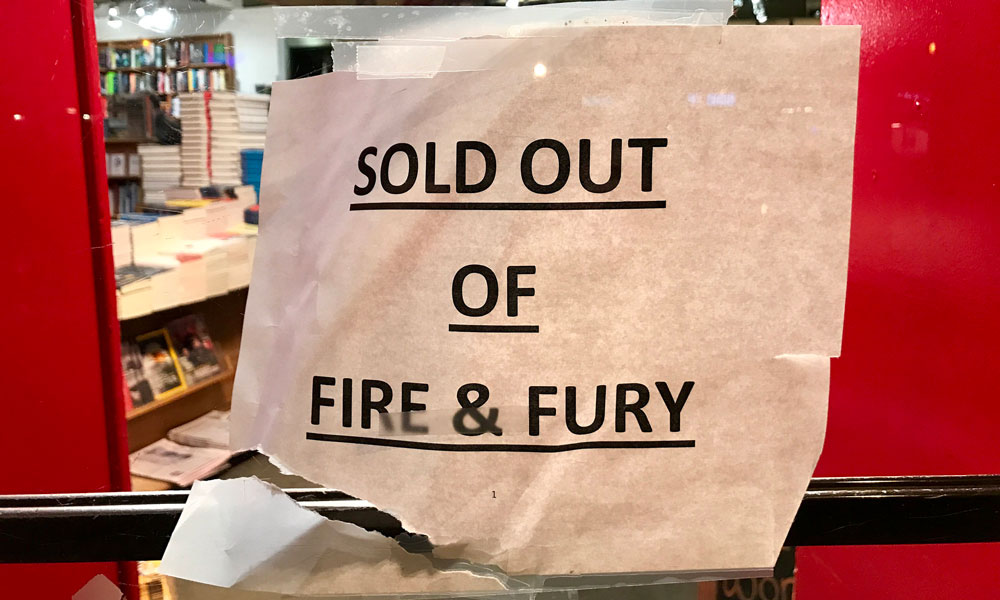
Associations Defend Publication of West Wing Tell-All
A cease-and-desist request against Michael Wolff’s Fire and Fury has associations invoking the First Amendment and a “chilling effect” on journalists.
A reporter’s portrait of life inside the West Wing in 2017 prompted a cease-and-desist request from the White House last week, in turn prompting multiple associations to defend their members’ work as writers, publishers, and booksellers.
Last Thursday, a law firm representing President Donald J. Trump sent a letter to reporter Michael Wolff and his publisher, Henry Holt, requesting that Wolff’s book Fire and Fury: Inside the Trump White House be withheld from release. The letter, written in response to an excerpt from the book published early last week on the website of New York magazine, makes multiple accusations against Wolff and Henry Holt, including libel against Trump and inducement of breach of contract against former White House Chief Strategist Stephen K. Bannon.
To the Guild’s knowledge, no prior President has sued a writer for libel.
“Mr. Trump hereby demands that you immediately cease and desist from any further publication, release or dissemination of the Book, the Article, or any excerpts or summaries of either of them, to any person or entity, and that you issue a full and complete retraction and apology to my client as to all statements made about him in the Book and Article that lack competent evidentiary support,” reads the letter in part from Charles J. Harder of Harder Mirell and Abrams.
In response, Henry Holt moved up the release date for Fire and Fury to last Friday, ahead of its scheduled release date of January 9. In addition, multiple associations released statements calling President Trump’s request tantamount to censorship.
“While it is understood that some books will be unpopular, upsetting, or even threatening to some audiences, the Supreme Court has long recognized that prior restraints strike at the very heart of our democratic ideals and are presumptively unconstitutional,” said Maria A. Pallante, president and CEO of the Association of American Publishers, in a statement. “In most cases, the circumstances are such that the author has a right to write, the publisher a right to publish, and the public a right to read.”
The Authors Guild, which represents journalists and book authors, applauded Henry Holt’s decision to expedite the book’s release, “To the Guild’s knowledge, no prior President has sued a writer for libel, and for good reason,” the group said in a statement. “The ability to criticize the government and its leaders lies at the essence of the First Amendment’s protection of free speech; and threats of libel lawsuits are one of the de facto primary means of curtailing free speech in this country today.”
American Booksellers Association president Oren Teicher suggested that the cease-and-desist request would have a “chilling effect” on publishers. “Not only would it would deter authors and publishers from publishing future books about this president (and any future sitting president), it would also directly undercut our nation’s cultural and political legacy of a vigorous exchange and debate of ideas, the hallmark of a healthy democracy,” he said in a statement.
The attention generated by the excerpt—and the White House’s request that it not be published—has appeared only to stoke sales. Online retailers Amazon and Barnes & Noble say that hard copies will not be available for two to four weeks, with many retailers reporting selling out their stocks. According to The Guardian, 250,000 copies of the book had been shipped before the release of the excerpt and the White House’s response.
The Washington, D.C., bookstore Kramerbooks quickly sold out of the controversial book. (Joe Flood/Flickr)






Comments